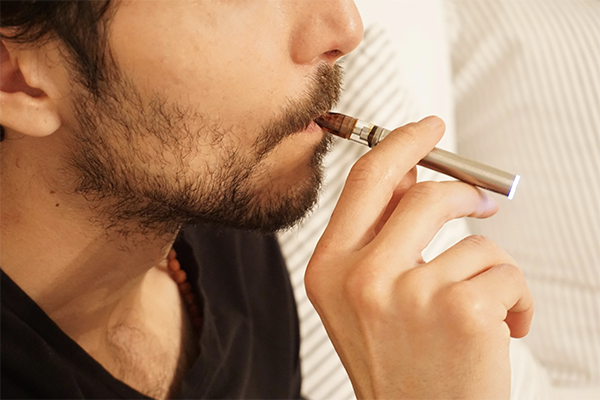How Long Does Nicotine Stay in Your System?
3rd May 2023

|
|
Nicotine is a stimulant drug that is found in the body after puffing on life-threatening tobacco products such as a cigarette or cigar, as well as non-tobacco products such as vapes containing nicotine e-liquid. People that use nicotine products, which also include snus orally or nicotine replacement therapies like patches or gum, will want to know how long it can stay in the system. Another key reason for knowing everything about nicotine in your system might be because of a request to take a test to detect nicotine in your body. This could be done through drugs test, blood tests or urine tests by your place of work contractually as a requirement. Alternatively, you might just be curious about how nicotine may be contributing to your health. It’s an addictive chemical from the nightshade family of plants with varied side effects, which range from person to person. Below we explain the key answers to these important questions – as well as how quickly nicotine can flush out of your system and the length of time nicotine withdrawals may last (plus any potential side effects). |
Nicotine Stays in the System Between 1-3 DaysNicotine absorbs very quickly within seconds, entering the bloodstream to give that sensation familiar to smokers and vapers. Your body then breaks that down into many chemicals, including cotinine, which stays in the body longer. Thanks to the work of enzymes in the liver, it’s easier for tests to pick up cotinine levels over a sustained period (between one to three weeks). Therefore, tests look at these statistics instead of nicotine levels in most cases. As each individual absorbs nicotine at different rates, there is a range of other factors that play an important role, including:
The substances then break down further via the kidneys and leave the body through urine. Therefore, there is no set duration for when nicotine and cotinine completely leave the system universally because each individual clears nicotine at different stages. |
‘Half-Life’ of Nicotine ExplainedThe ‘half-life' essentially refers to the amount of time it takes for 50% of the drugs taken to leave the body. Therefore, with nicotine, we know that it takes roughly two hours to see half of the nicotine consumed leaves. In addition to the half-life, nicotine tests can tell us a wide variety of results. Not just how much nicotine is in your system (qualitative) but also the concentration levels of nicotine and cotinine in the body too (quantitative). From the latter we can see how the subject consumes the nicotine and even traces that remain from passive smoke, detailing everything about your habits. |
How to Remove Nicotine From Your System FasterWe know that nicotine can remain in the system and appear in tests for different periods, depending on the person. For instance, nicotine appears in saliva tests the quickest from 24 hours and remains for up to 14 days, while blood tests range between 48 hours to 21 days, urine from three to 20 days and hair up to 90 days. However, there are some quick fixes to try to help get nicotine out of your system quicker, including:
|
How Long Do Nicotine Withdrawals LastIt’s recognised that nicotine can contain some side effects. Again, these may vary depending on the individual and the amount of nicotine you inhale. Plus, you have to consider the other chemicals that we certainly know are dangerous in cigarettes and some less dangerous ingredients in vape e-liquids, which are still in the early research stage. But if you can eradicate nicotine from your life, that’s fantastic as you hopefully quit cigarettes and vaping for good. But, what’s important to understand is there will likely be some withdrawal symptoms from no nicotine, which will intensify at least initially. These can range from frustration and anger to headaches and nausea.
|


